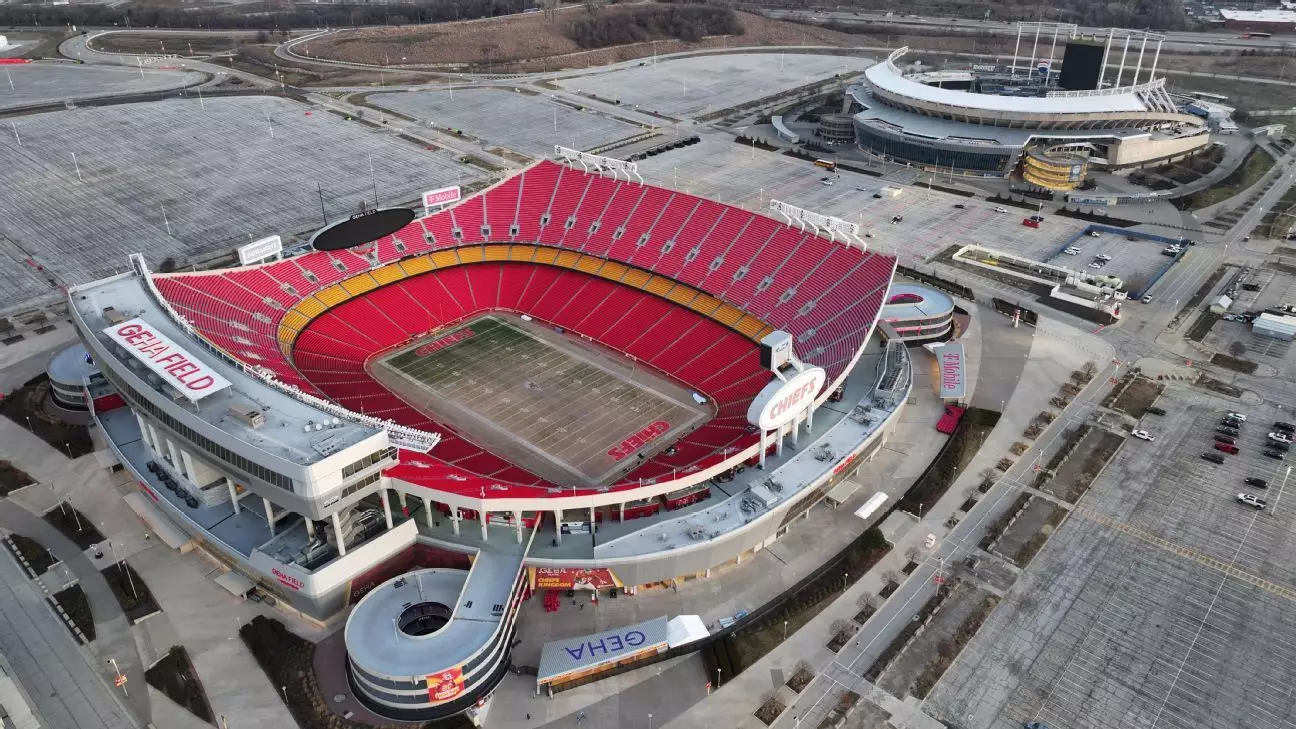In a dramatic reflection of the fragility of urban recovery and sports economics, the Missouri Senate has recently approved a substantial financial aid package aimed at devastation recovery in tornado-hit St. Louis and keeping two beloved sports franchises—Kansas City Chiefs and Royals—within the state. This initiative, exceeding $100 million, highlights the urgent measures government bodies are willing to undertake to ensure both civic revival and the retention of significant sports entities that contribute to local identity and economy.
The hastiness of these legislative actions is indicative of a dual crisis: St. Louis is still grappling with the dire aftermath of storm-related devastation that has left communities reeling with an estimated $1.6 billion in damages, while simultaneously facing the looming threat of the Chiefs and Royals potentially relocating to Kansas. Time is of the essence, with a looming deadline of June pushing lawmakers into a special session where negotiations become less about strategic planning and more about reactive strategies to safeguard local interests.
The Financial Tug-of-War
The aid package proposed not only responds to the immediate crises of natural disaster but also serves as a broader gambit in the intense financial contest between states. Lawmakers pushed forward through a series of early-morning votes after Republican Governor Mike Kehoe brokered a deal believed to have appeased disgruntled lawmakers demanding enhanced disaster relief measures and opportunities for property tax alleviation for struggling homeowners.
Strikingly, the inclusion of the stadium incentives amid disaster recovery funds creates a complex narrative—how much should a government prioritize commercial ventures over the essential needs of its citizens? In this case, public funding for sports facilities is framed as an economic development strategy. However, the validity of this belief is hotly debated among economists, creating a rift between optimistic proponents and critical analysts who argue that funding these stadiums siphons off resources that could be allocated towards essential public services.
A Costly Investment or a Wise Move?
The discussions surrounding the Chiefs and Royals’ future hinge on competitive financial proposals. Missouri’s offer includes the authorization of bonds covering 50% of stadium expenses and tax credits along with localized government support. This contrasts with Kansas’ more generous incentives which could cover up to 70%. Kansas lawmakers have designed their pitch as a substantial draw, leaving Missouri to play catch-up in what feels like an arms race for sports ownership.
Proponents of public funding for stadiums, such as Chiefs lobbyist Rich AuBuchon, tout the economic benefits of publicly funded venues seen in cities like Baltimore and New Orleans—successful revitalization cases that serve as proof of the model’s effectiveness. Yet opinions diverge sharply along ideological lines. Patrick Tuohey, a free-market think tank representative, accuses state authorities of allowing sports franchises to exploit regional rivalry for their own financial gain without due consideration of the long-term impacts. Such an approach he argues, results in a loss of tax revenues that could bolster public safety and essential community services.
The Community vs. Corporate Interests
There remains a palpable dichotomy at play: the love for sports and community spirit versus the broader implications of funneling taxpayer dollars into the coffers of billionaire team owners. Critics, including Tuohey, emphasize the moral and ethical implications of sacrificing local autonomy and tax finances for athletic pursuits. Public support systems are put in jeopardy as states prioritize sports franchises while compromising on critical services.
The reality remains that sports teams are vital players in community identity and economic health, though the balance skews alarmingly towards prioritizing profit margins over public welfare. The battle for the homes of the Chiefs and the Royals underscores a larger narrative—forging a devastatingly precarious alliance between governmental bodies seeking revitalization and the alluring, yet contentious world of sports economics.
In the end, the decisions made in these high-stakes negotiations will shape not only the immediate landscape of Kansas City but also signal to surrounding areas what priorities will be upheld or sacrificed in the name of civic identity and economic prosperity.


Leave a Reply